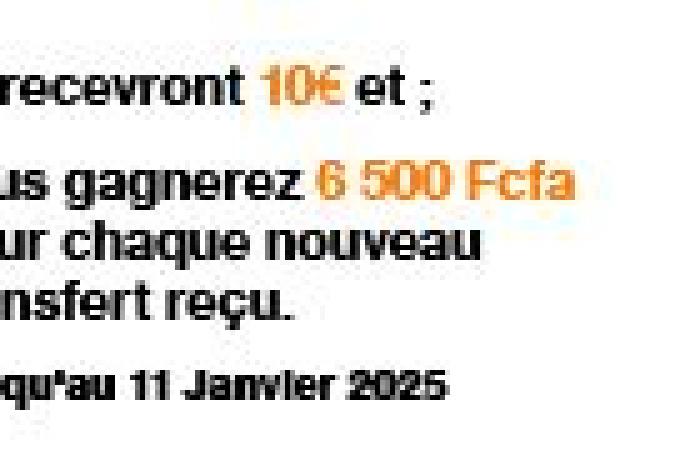

Defense •Specialized in external operations in recent years, the French army must face evolving international threats, while the election of Donald Trump could reshuffle the cards for the American presence in Europe
Numbers, experience, equipment… What would the French army be worth today, in a so-called high-intensity conflict? After the election of Donald Trump, which could reshuffle the cards for American presence in Europe, and faced with the Russian threat, would France have the means to assume a leading position within the European Union? 20 Minutes takes stock of the situation.


What is the state of the French armed forces?
The Ministry of the Armed Forces will have just over 200,000 people in 2024, including 120,000 in the Army (including 77,000 in the land operational force), 40,000 in the Air Force and 41,000 in the Navy. . The reserve stands at just over 40,000 people. Among the main equipment, the Army relies (officially) on 222 Leclerc combat tanks. France also had, before 2022, 76 Caesar gun trucks (capable of firing six shells 40 kilometers in less than a minute), and ceded around thirty to Ukraine. An order for new equipment should allow it to rise to 109 units, after 2030.
The Navy, for its part, has four nuclear missile submarines, five nuclear attack submarines, an aircraft carrier, 15 frigates and 45 Rafale Marine combat aircraft. The Air Force has 197 fighter planes, including 108 Rafale with the last deliveries in 2024, but must cede some Mirage 2000-5 to Ukraine at the beginning of 2025.
Researcher at the Center for Security Studies at Ifri (French Institute of International Relations), arms specialist, Léo Péria Peigné tempers these elements. “In human terms, we are starting to see the effects of the aging of France, which limits the recruitable population,” he explains to 20 Minutes. Other factors, such as the end of external operations (Opex) which have largely contributed to the recruitment of the armies, mean that it may be difficult to achieve the transition with the new missions of the armies, in particular our presence in the east. , less attractive. »
On equipment, the arms specialist estimates that France actually has “a little less than 200 tanks, two thirds of which are operational at any given time”. Besides this, “new vehicles are entering service – Griffon, Jaguar, Serval – very modern machines but whose design is also very influenced by France’s African Opex”. On fighter planes, “by spreading out the delivery of the Rafale, when the last one is delivered, it will almost be necessary to remove the first ones, which will then be more than thirty years old,” warns the specialist. And we still lack the ability to destroy enemy anti-aircraft defenses.”
An enviable nuclear power?
France is also, above all, a nuclear power, which gives it a special status. “More than ever, French nuclear deterrence guarantees us protection that many other allies may envy,” writes the Minister of the Armed Forces Sébastien Lecornu, in his recent book Vers la guerre? The benefit of deterrence is that “the adversary must take into account the risk of nuclear escalation in its calculation”, reminds 20 Minutes Yannick Pincé, doctor in contemporary history and nuclear specialist, within the Interdisciplinary Center on Dissuasion. strategic issues (Ciens).
But is the French deterrent credible? “We have 290 nuclear warheads, that may seem low, but we have enough to cause considerable damage,” assures Yannick Pincé. If we launched even half of our arsenal, we could lower temperatures globally. And we have another ally with whom we have common vital interests, the United Kingdom. If we combine the two, we are not far from Chinese capabilities, and there we enter into even stronger credibility.” However, even if “France has always had a European dimension in its conception of deterrence,” recalls Yannick Pincé, “our allies will always prefer the American umbrella, because in terms of capabilities the United States is much superior to us, and is considered more dissuasive. “. The United States (3,700 nuclear warheads) has, in particular, 180 nuclear weapons deployed in Europe.
Léo Péria-Peigné points out for his part that “deterrence absorbs between 10 and 15% of the military budget, and concentrates an enormous amount of effort for a very specific area, perhaps to the detriment of more conventional capabilities”.
Is the French army still a large army or a “bonsai army”?
The French army is now between 10th and 11th place in the ranking of world military powers. In Europe, “we are still among the very first,” assures Léo Péria-Peigné, “but there is a gradual decline, particularly due to the fact that other players are developing their capabilities.” The French army would now be ahead of the Polish army, which has claimed 216,000 soldiers in its ranks since this year. “We must put things into perspective,” Léo Péria-Peigné deciphers, however, “because Poland tends to have personnel who are only reservists. But in fact it is heading towards becoming the leading army in Europe in terms of numbers. Above all, unlike France, all Polish resources are put at the service of a single strategic objective: European territorial defense, where France disperses its resources over various objectives (Europe, Africa, Indo-Pacific, deterrence, Sentinel, etc.) »
Has the French army become over time a “bonsai army”, as the journalist specializing in military issues Jean-Dominique Merchet had described it, that is to say an army which has everything, but in small quantity? Certainly. Which has its advantages and disadvantages. Yannick Pincé points out that it is thus “one of the few in Europe to have maintained a multi-capability army”. The same goes for Léo Péria-Peigné. “It's quite healthy in itself, because it's easier to ramp up if necessary, than to start from scratch. »
But this choice also has its drawbacks. “Sometimes, we only have one unit left, like for electronic warfare, which seems weak given the challenges that it represents today. We only have six long-range rocket launchers left, we do not have any real means of combating drones, lists the Ifri specialist. If tomorrow we have to be the framework nation within the union, we will miss things. But we are not the only ones, everyone is in this situation. »
Could the experience acquired in external operations be useful in the event of a high-intensity war?
Since 2015, the French armed forces have been regularly engaged in counter-terrorism operations: Barkhane in the Sahel, Chammal in Iraq-Syria. But, “it is not because we know how to wage war in Mali that we know how to wage high-intensity war,” declared General Thierry Burkhard, Chief of Staff of the Armed Forces, in an interview with AFP and to the New York Times on May 6. I'm not saying that what we're doing in Mali is easy, but we don't have artillery in front that hits us in depth. »
“On the one hand, this earns us the admiration of some, because what has been done is not only combat, it is also the capacity to organize, to carry out deployments, logistics, which is very valuable, but it also cost us very dearly in terms of wear and tear on the equipment, explains Léo Péria-Peigné. And we must recognize that these are very specific operations, with limited opposition, because they are more about counter-insurgency than war. We thus have an Army which has specialized in expeditionary missions in the Sahel and which must now evolve to be able to cope with high intensity. » What will this experience be worth “if we have to defend our European allies within NATO? ” ” I don't know. It is an ambivalent heritage. »
Could France and Europe defend themselves against Russia without the Americans?
It goes without saying that a confrontation against a great power like Russia would take place on the scale of Europe, or of NATO, and not of a single nation. However, “the presence or not of the United States in Europe defines our capacity to defend ourselves,” believes Léo Péria-Peigné. “Without the United States we are in difficulty, but the American priority is no longer Russia, it is China. The war in Ukraine temporarily stopped the decline of the American presence in Europe, but will it last? [avec l’élection de Donald Trump]I don't know. »
Our file on the war in Ukraine
The presence of American soldiers on European soil is essential, confirms Yannick Pincé, because “attacking NATO countries means attacking American soldiers”. However, during the presidential campaign, the billionaire threatened to withdraw from Europe. “Will Trump withdraw his troops? I'm not sure, however, thinks Yannick Pincé. We must not forget that NATO is also an alliance that allows American industry to operate at full capacity, since European countries buy American equipment. Look at the difficulties we have exporting the Rafale to Europe, while our allies are buying F-35s. So even Donald Trump would think twice before following through on his words. » Wait and see.
Source: https://www.20minutes.fr/





